Finland is the Chair of the Arctic Council in 2017–2019. In this issue of LUMEN, the Top of Europe is described and analyzed from different perspectives.


Finland is the Chair of the Arctic Council in 2017–2019. In this issue of LUMEN, the Top of Europe is described and analyzed from different perspectives.
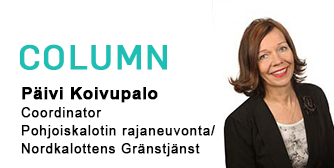
Border expertise is important and needed but when it comes to finding financing no one seems to be ready to provide the resources needed.

When teachers and students co-create the teaching-learning experience, it results in a positive learning outcome. The co-creation that happens in a cross-cultural classroom would imply learning for both students and teachers.
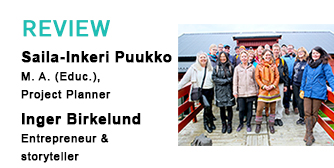
Heart of a story event was organized for the tourism companies along the Northern Lights Route in Finland, Sweden and Norway. The purpose of the event was to inspire and present different storytelling tools to the participants: “Connecting the dots”.
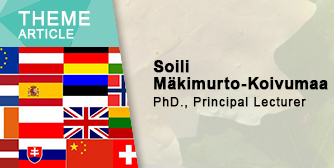
Building a partner network requires individuals to make personal contact with partners and to work actively to bring about collaboration. Maintening international contacts and a partner network has become more demanding in the School of Industry & Natural resources.
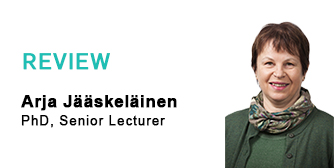
The Nordic Green Care co-operation is beginning. The Nordic researcher network has been active for a few years. Through study trips and participation in Green Care events in other countries, connections have been made with higher education institutions, research institutes and Green Care entrepreneurs in Sweden and Norway in particular.
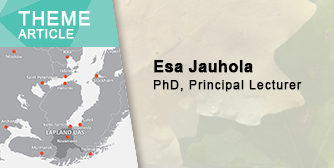
It is important that the institutes of higher education take the role as a link to the Central Europe, US and Asian countries. In these networks, the universities could train people in businesses and business environment of the High North including the sustainable development.
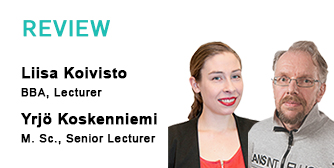
The Nordic countries is the happiest area in the world – can we also be the smartest?
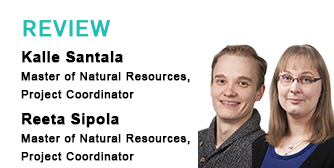
To promote bioeconomy you have to be able to combine different areas of expertise to create new use of bio mass resources. This enables new kind of networks and symbiotic relationships between enterprises even from different lines of industries. International competences are particularly important in the industries where the operations are aimed at international markets.
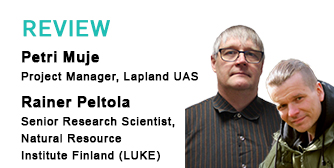
One of the absolute adventages of Barents region are the wild products of forests. These Non-Timber Forest Products (NTFPs) are already utilized in niche markets. However the production of NTFPs is not governed nor managed, which has led to insecure availability of raw material.
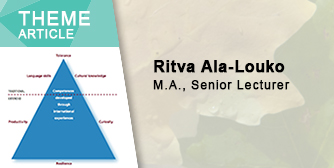
Intercultural knowledge and versatile communication and language skills are the basis of international competence. The students studying at universities of applied sciences are prepared for the skills and competencies required by working life.
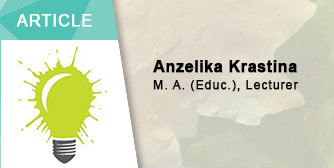
Lapland UAS highlights the importance of entrepreneurship in the education programmes. Entrepreneurship competence development is no longer the privilege of the business studies only, but it becomes a part of every curricula regardless the field of study.
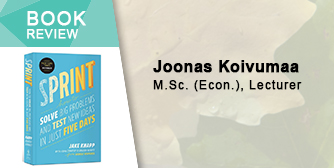
This is a book about innovation. At first, I was little bit skeptic since there are way too many books that foists one solution to all problems.
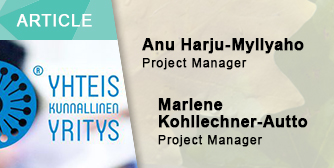
The purpose of social enterprises is to create jobs especially for people with lowered ability to attain employment and for long term unemployed. A social enterprise does not differ from other companies. In Lapland there is only two holders of the Social Enterprise mark.
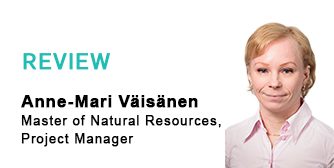
Virtual Forest serves the Finnish forestry sector: helps to strengthen the competitiveness and speed up wood mobilization as well as modernize this traditional livelihood.
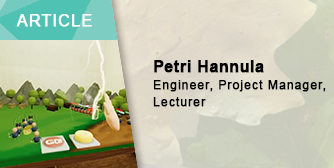
During the summer of 2017, Lapland University of applied science and Lapland University Faculty of arts organised a summer game studies course and training. Virtual reality was selected because of its challenges and, of course, because of virtual reality’s huge potential.

Companies should know where their branch is going, and what competences and expertise they should have in the near future. In small and micro companies, managing directors are often too busy to think the future in strategic way.
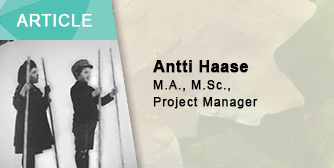
The Illuminators is a documentary feature film recounting how Lapland was electrified, but also about sons following in their father’s footsteps.